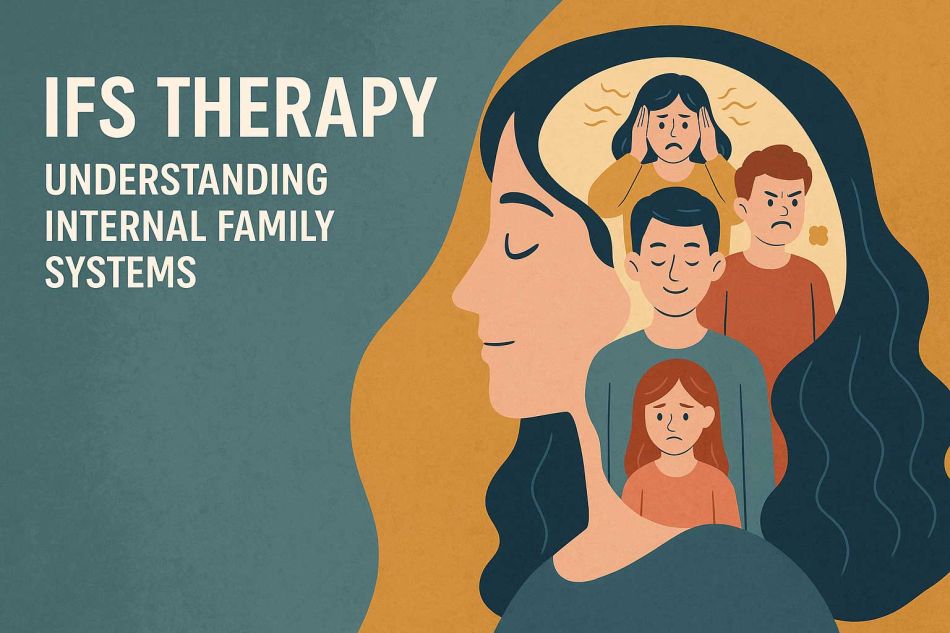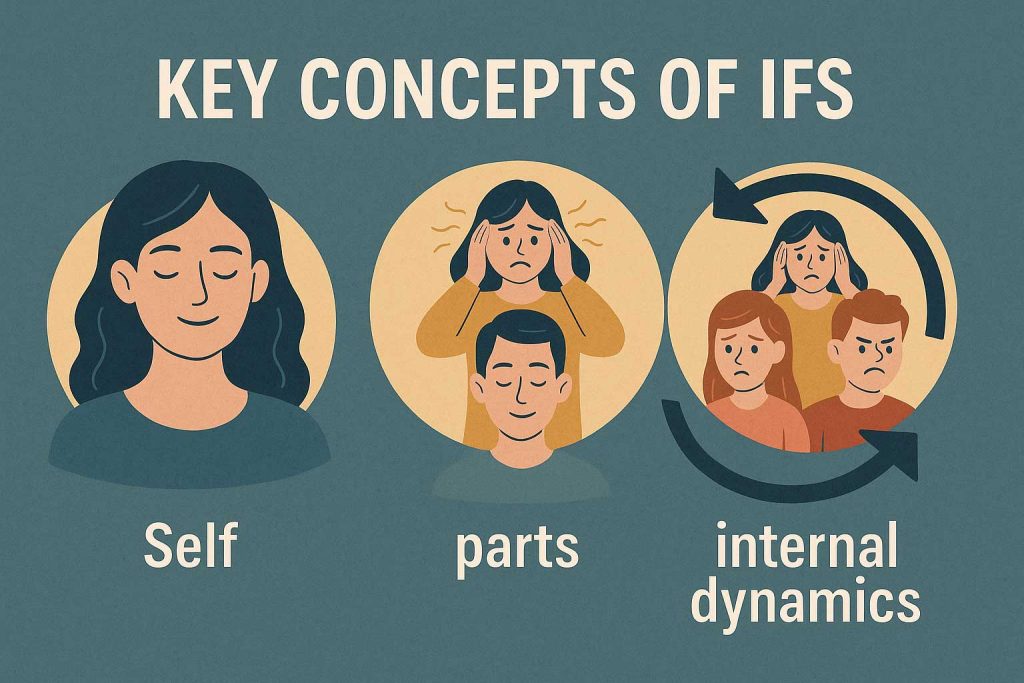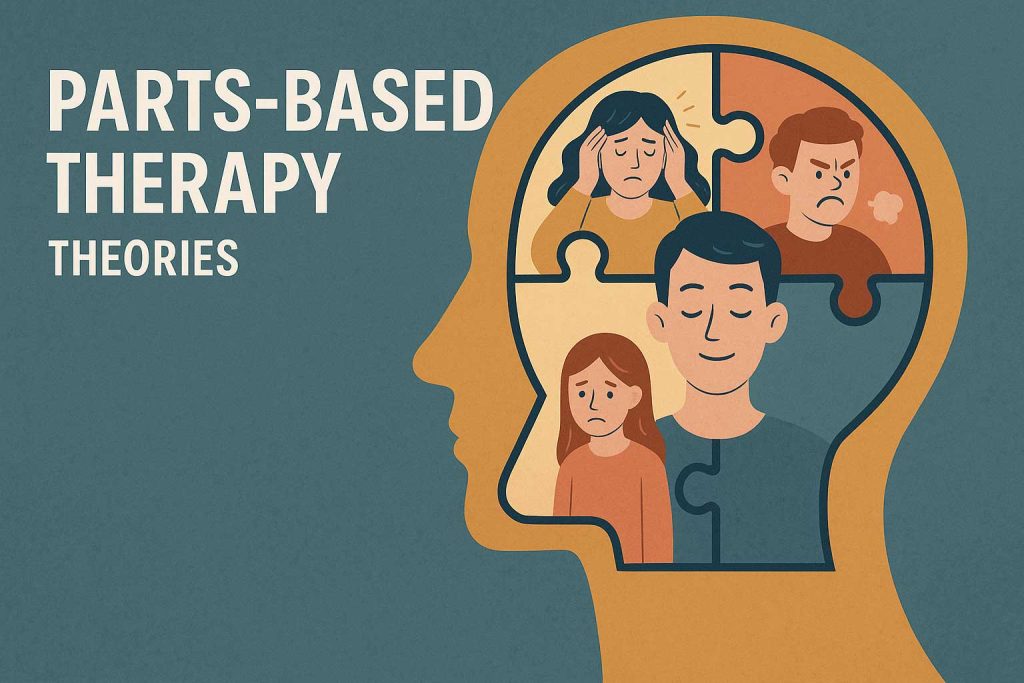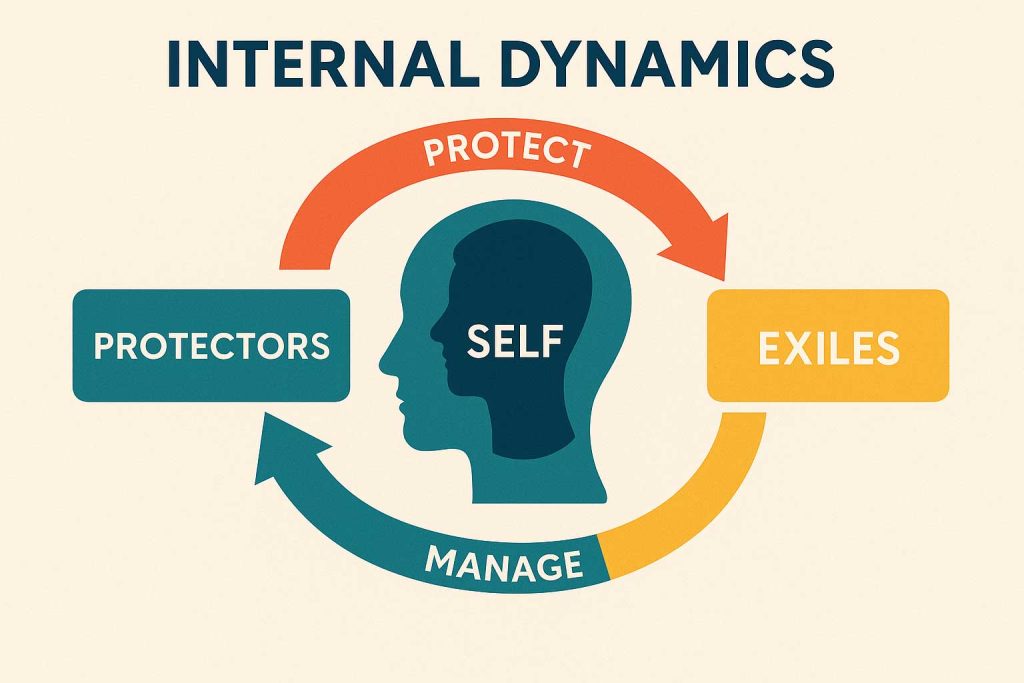IFS Therapy: What It Is and How It Works

Understanding Internal Family Systems (IFS) Therapy
Internal Family Systems (IFS) therapy is a powerful and transformative form of psychotherapy that has gained popularity for its compassionate, non-pathologizing approach to healing. Developed by Dr. Richard Schwartz in the 1980s, IFS offers a groundbreaking way to understand the mind by viewing it as a system of inner “parts,” each with its own perspective, emotions, and roles.
Rather than seeing emotional struggles as flaws or disorders, IFS invites clients to explore the internal landscape of their psyche, heal wounded parts, and cultivate a sense of inner harmony. This therapy is increasingly used to address trauma, anxiety, depression, and a wide range of emotional and relational challenges.
The Core Concepts of IFS Therapy

The Mind as a System of Parts
IFS posits that the human mind is naturally multiple. In other words, everyone has different “parts” or sub-personalities. These parts are not symptoms to be eliminated, but rather inner beings with valuable qualities, trying to help in the best way they know how.
Examples of parts include:
- A perfectionist part that pushes you to succeed
- An anxious part that tries to keep you safe
- A wounded inner child who holds past pain
Each part has its own emotions, thoughts, and goals, and all parts are trying to help—even if their methods are sometimes harmful or counterproductive.

The Self: Calm, Compassionate, and Confident
At the core of the IFS model is the Self – a central, undamaged essence within every person that embodies qualities like compassion, curiosity, calmness, clarity, and confidence. IFS therapy helps individuals reconnect with the Self and lead their internal system from this grounded, loving place.
When the Self is in the lead, it can build trusting relationships with the inner parts and guide them toward healing.
The Three Types of Parts in IFS

1. Exiles
Exiles are parts that hold emotional pain, trauma, or shame. They are often young, vulnerable, and carry burdens from past experiences. Because their pain can feel overwhelming, other parts of the system work hard to keep them suppressed.
2. Managers
Managers are proactive parts that try to keep the system safe and functional. They are often responsible for controlling behaviors, maintaining appearances, and avoiding painful emotions. A manager might manifest as a perfectionist, an overachiever, or a people-pleaser.
3. Firefighters
Firefighters are reactive parts that spring into action when exiles are triggered. Their goal is to numb or distract from emotional pain, often through impulsive behaviors such as overeating, substance use, self-harm, or emotional outbursts.
How IFS Therapy Works

IFS therapy is a collaborative, client-led process. The therapist helps clients:
- Identify and get to know their parts
- Understand the roles those parts play
- Develop a relationship between the Self and each part
- Help parts release burdens and transform into healthier roles
Step-by-Step Process
Step 1: Accessing the Self
The therapist helps the client identify when they are speaking from a part, and when the Self is present. The goal is to access the calm, centered Self and build trust within the system.
Step 2: Identifying and Befriending Parts
Once in Self, the client is encouraged to turn inward and notice which parts are present. The therapist may ask questions like:
- “How do you feel toward that part?”
- “What does that part want you to know?”
This process encourages compassion and understanding rather than judgment or resistance.
Step 3: Unburdening Exiles
With permission and trust, the client can approach exiled parts and help them release the burdens they carry—shame, fear, anger, or beliefs formed in moments of trauma. The therapist guides this process gently, allowing for emotional healing and reintegration.
Step 4: Integrating Transformed Parts
As parts unburden and heal, they often take on new roles. A previously anxious part may become a wise advisor. A reactive firefighter may become a playful and spontaneous ally. The goal is not to eliminate parts but to help them transform and cooperate under the guidance of the Self.
Benefits of IFS Therapy
Trauma Healing Without Re-Traumatization
IFS offers a safe way to address trauma by working at the client’s pace and respecting their internal system. It does not require reliving traumatic memories but focuses on witnessing and healing the parts affected by them.
A Non-Pathologizing Approach
IFS does not view symptoms as defects or disorders. Instead, it honors the intention behind every part’s behavior, even if the outcome is harmful. This compassionate stance fosters self-acceptance and long-term change.
Greater Self-Understanding and Empowerment
Clients often report a profound shift in how they relate to themselves and others. They develop inner leadership, emotional regulation, and a more authentic sense of self.
Applicable Across a Range of Issues
IFS is effective for:
- PTSD and complex trauma
- Anxiety and depression
- Addiction and compulsive behaviors
- Eating disorders
- Relationship issues
- Self-esteem and identity concerns
What to Expect in an IFS Therapy Session
Initial Exploration
Early sessions often involve education about the IFS model and identifying prominent parts. Clients learn to notice internal dialogue and how different parts show up in their life.
Guided Internal Dialogues
Sessions often include guided meditations or visualizations where the client interacts with their parts. The therapist acts as a supportive guide, helping the client navigate these internal conversations with curiosity and compassion.
Self-Led Healing
As clients grow more confident in accessing the Self, they can take greater leadership of their healing process. Over time, the system becomes more cooperative, balanced, and resilient.
Common Misconceptions About IFS
- IFS promotes dissociation: On the contrary, IFS fosters integration and connection among parts.
- IFS is only for trauma survivors: While highly effective for trauma, IFS supports anyone seeking emotional growth.
- IFS is spiritual or esoteric: The model is grounded in clinical practice and research, though some clients experience it as deeply spiritual or transformative.
Frequently Asked Questions (FAQ)
“Parts work” refers to the process of identifying, understanding, and interacting with the different sub-personalities or parts within oneself. Each part has its own perspective and role, and IFS therapy helps build harmonious relationships among them.
Yes. IFS is supported by a growing body of research showing its effectiveness in treating PTSD, depression, anxiety, and other mental health conditions. It is recognized by the National Registry of Evidence-based Programs and Practices (NREPP) in the U.S.
The length of therapy depends on the individual and the complexity of their system. Some clients experience significant change in a few months, while others engage in long-term work. Progress is often steady and deep.
Yes. Many people use IFS techniques in self-therapy, journaling, or meditation. However, working with a trained therapist is recommended for deeper or more complex healing, especially involving trauma.
IFS therapists undergo specialized training through the IFS Institute, including Level 1, 2, and 3 certification programs. These trainings ensure that therapists understand the model deeply and apply it ethically and effectively.
Yes. IFS has been adapted for children, families, and couples. In couples therapy, each partner explores their own parts and learns how these influence the relationship. The approach helps build mutual understanding and reduce conflict.
Unlike traditional talk therapy, IFS focuses on internal systems rather than surface behaviors or cognitive restructuring. It emphasizes healing at the root level by accessing the Self and transforming protective and wounded parts.














Leave a Reply